Artificial Intelligence (AI) is transforming learning management systems (LMS). It offers advanced tools for personalizing learning experiences. AI helps optimize content delivery and enhances educational outcomes. AI-powered LMS platforms allow educators to use data-driven insights. They automate routine tasks and create customized learning pathways for users. This makes learning more efficient and tailored to individual needs.
This article explores the fundamentals of AI in Learning Management Systems, their effectiveness, and the key differences between traditional and AI-based platforms. Additionally, we review top AI solutions providers for e-learning.
Table of Contents
- What is an AI-based Learning Platform?
- What are the Benefits of AI in LMS?
- Standard LMS vs. AI-Powered LMS: Key Differences
- Key Features Of AI-Powered LMS Platforms
- Top AI Solution Providers for E-Learning
- Choosing the Right LMS Development Provider – Kaopiz’s Expertise
- Conclusion
- FAQs
What is an AI-based Learning Platform?
An AI-based learning platform integrates artificial intelligence technologies into an LMS to automate, personalize, and optimize the learning process. These platforms use machine learning algorithms, natural language processing, and data analytics to adapt to each learner’s behavior, preferences, and progress in real time.

An artificial intelligence in LMS can predict learner needs, recommend relevant resources, and even automate routine administrative functions, such as grading, attendance tracking, and content updates, freeing educators to focus more on teaching strategy and student interaction.
What are the Benefits of AI in LMS?
The integration of AI in Learning Management Systems is transforming how organizations and institutions deliver education and training. From automating administrative tasks to offering hyper-personalized learning paths, AI-powered LMS platforms are helping both educators and learners achieve better outcomes faster.
According to a report from the International Society for Technology in Education (ISTE), AI in e-learning can increase learner engagement by up to 40% through personalized and interactive content delivery. The U.S. Department of Education also recognizes AI’s ability to support inclusive education, bridging the gap between learners of different levels and backgrounds.
Here are the key benefits of implementing LMS with AI:
Enhanced Learner Engagement
AI-based learning management system uses gamification and interactive elements like chatbots to engage users actively. This gamification approach, combined with real-time feedback mechanisms, keeps learners motivated and committed to their courses.
Efficiency and Time Savings for Educators
By automating routine tasks such as grading and attendance tracking, AI-based LMS platforms reduce administrative burdens on educators, giving them more time to develop course content and interact with learners. This efficiency translates to a more streamlined and effective educational experience.
Data-Driven Insights for Continuous Improvement
AI integration in LMS platforms offers in-depth analytics on learner behavior, helping educators and organizations refine courses based on performance data. This data-driven approach allows for continuous improvement, ensuring that courses are optimized for maximum effectiveness.
Personalized Learning Experiences
Artificial intelligence-powered LMS adapts content delivery based on a learner’s pace, preferences, and progress. This level of personalization leads to higher retention, better outcomes, and a more engaging educational journey.
Proactive Support and Risk Detection
Through predictive analytics, AI-driven LMS platforms can identify at-risk learners early, offering proactive support or intervention. This helps reduce dropouts and ensures that no learner falls behind.
Standard LMS vs. AI-Powered LMS: Key Differences
Traditional LMS platforms primarily function as centralized repositories for educational content, offering course management tools and tracking progress. On the other hand, AI-powered LMS goes beyond these capabilities, incorporating predictive analytics, adaptive learning, and automated systems for a more interactive and responsive user experience.

a) Adaptive Learning Technology
- Unlike standard LMS, AI-powered systems use adaptive learning technology to adjust the course structure and content delivery based on real-time data from the user’s interactions. This means that each learner can receive customized recommendations and personalized feedback tailored to their progress.
b) Predictive Analytics in Education
- AI-driven LMS platforms utilize predictive analytics to forecast learning outcomes and identify at-risk students early on. By analyzing behavioral and performance data, the platform can suggest targeted interventions, such as additional resources or tutoring, to improve learner success rates.
- Predictive tools also help institutions and organizations monitor overall program effectiveness, allowing them to make data-driven decisions.
c) Automation of Administrative Tasks
- Standard LMS platforms require manual input for grading, tracking attendance, and managing course schedules. In contrast, AI-based systems automate these processes, saving time for educators and enabling them to focus on providing quality instruction.
Key Features Of AI-Powered LMS Platforms
Whether you’re replacing a legacy learning platform or enhancing your current L&D strategy, choosing the right AI-based LMS is crucial for scalable, engaging, and personalized learning experiences. Here are essential features to look for when evaluating an AI-powered LMS:
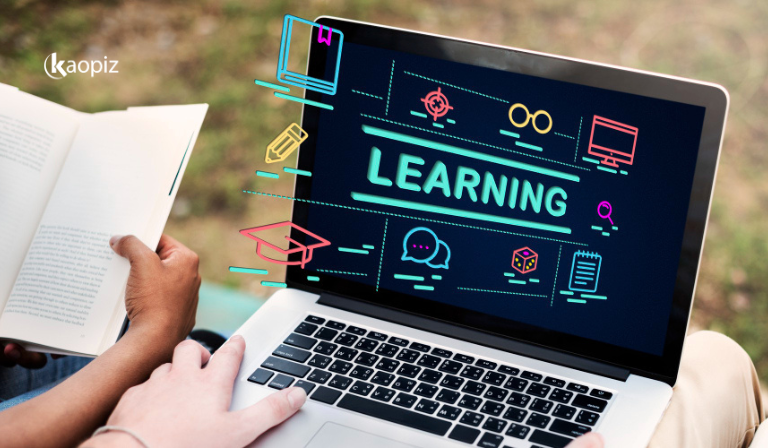
- Adaptive Learning Paths: AI customizes the learning journey by monitoring user performance and behavior. It dynamically adjusts content difficulty, pace, and resources to meet individual learning needs.
- AI-Driven Analytics: Real-time analytics powered by AI offer deep insights into learner engagement and performance. Organizations can identify trends, optimize content, and track training ROI effectively.
- Intelligent Content Curation: AI recommends relevant courses and materials based on learner roles, history, and interests. This ensures content is always targeted, timely, and personalized.
- Automated Assessments: AI evaluates knowledge in real time and adjusts question difficulty accordingly. This approach provides instant, personalized feedback and helps measure true learner understanding.
- Chatbots and Virtual Assistants: AI chatbots offer 24/7 support, guiding users, answering questions, and simplifying navigation, improving learner experience and reducing instructor workload.
- Gamification: Features like badges, quizzes, leaderboards, and certificates make learning engaging and fun. Gamification can boost motivation, knowledge retention, and course completion rates.
- Quiz Generation: AI automatically creates quizzes based on course materials or documents. This promotes active learning and makes it easier to evaluate knowledge along the way.
Top AI Solution Providers for E-Learning
Choosing the right AI solution provider is crucial for organizations seeking to implement an effective platform and embrace LMS trends. Here are some leading companies recognized for their innovative approaches in the field:
Blackboard AI
Blackboard AI is a prominent provider that integrates artificial intelligence into its LMS solutions, offering features like automated grading, smart content curation, and personalized learning paths. Their AI-powered tools are designed to optimize both instructor and learner experiences, making them a popular choice among educational institutions.
Coursera for Business
Coursera for Business offers AI-powered corporate learning solutions that focus on upskilling and reskilling employees. Their LMS uses predictive analytics to track employee progress and suggest training modules, enhancing business training efficiency and employee skill development.
Moodle with AI Plugins
Moodle, an open-source LMS platform, has introduced AI plugins that add functionalities such as predictive analytics, intelligent tutoring systems, and personalized content delivery. These plugins allow organizations to upgrade their existing LMS infrastructure with AI capabilities without developing an entirely new system.

Microsoft Azure AI
Microsoft provides a suite of AI services that integrate seamlessly with Teams, SharePoint, and LMS platforms. With Azure Cognitive Services and Copilot, organizations can automate grading, generate content, and deliver personalized training experiences.
Kaopiz
At Kaopiz, we develop custom AI-powered e-learning solutions tailored to your business or institution. From building AI chatbots and adaptive learning systems to integrating machine learning models for analytics and automation, we help you transform static LMS platforms into intelligent, high-impact learning ecosystems.
Choosing the Right LMS Development Provider – Kaopiz’s Expertise
When implementing AI in Learning Management Systems, it’s essential to partner with a provider experienced in developing and integrating AI technology. Kaopiz has extensive expertise in designing custom LMS platforms that incorporate AI for personalized learning, data analytics, and automation.
a) Expertise in AI Integration for E-Learning Systems
Kaopiz specializes in developing enterprise-grade learning management systems that leverage AI to offer adaptive learning paths, automated grading, and real-time analytics, ensuring the most efficient and effective learning experience possible.
b) Proven Track Record in AI-Based LMS Platforms
Kaopiz’s experience in implementing AI-powered LMS solutions across various industries showcases its ability to create custom solutions that meet diverse learning needs, making it a trusted partner for organizations looking to enhance their e-learning capabilities.
Whether you’re looking to modernize your existing platform or develop a fully customized, AI-powered LMS from the ground up, Kaopiz is here to help. With our deep expertise in AI development, e-learning systems, and scalable software development, we’ll turn your vision into a high-impact learning solution.
Conclusion
Artificial Intelligence is reshaping the e-learning landscape, providing significant advancements in Learning Management Systems. From adaptive learning technology and smart content curation to predictive analytics, AI-based LMS platforms offer unparalleled benefits for organizations and learners alike. As technology continues to evolve, investing in AI-powered learning solutions will be crucial for educational institutions and businesses aiming to stay competitive.
For organizations looking to implement a comprehensive AI-based LMS solution, Kaopiz offers a proven track record and expertise to ensure that your platform is both innovative and effective.
FAQs
What is the Difference Between AI and ILMs?
AI refers to the broader field of technology that enables machines to simulate human intelligence, such as learning, reasoning, and problem-solving.
An AI-based LMS (Learning Management System), on the other hand, is a specific application of AI within educational platforms. It uses AI to personalize learning paths, automate tasks like grading, provide intelligent recommendations, and deliver insights through data analytics.
Can AI Be Integrated into Existing LMS Platforms?
Yes. AI can be integrated into existing LMS platforms through APIs, plugins, or custom development. Common enhancements include AI chatbots for support, smart content recommendations, automated assessments, and predictive analytics. With the right partner, like Kaopiz, integration can be done smoothly and securely, without disrupting current learning workflows.
How Does an AI-driven LMS Improve Student Outcomes?
An AI-driven LMS boosts student success by offering personalized content, adaptive learning experiences, real-time feedback, and intelligent progress tracking. These features keep learners engaged, identify challenges early, and support instructors in delivering more effective, data-informed instruction.
3 Replies to “AI in Learning Management Systems: A Complete Guide For 2025”
Leave a Comment
Trending Post
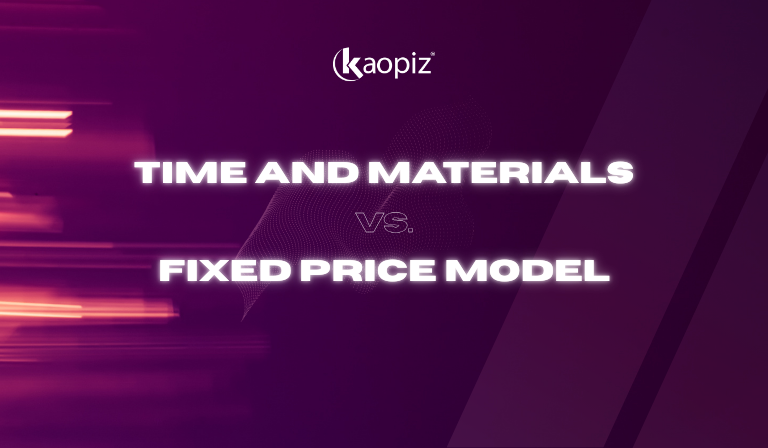
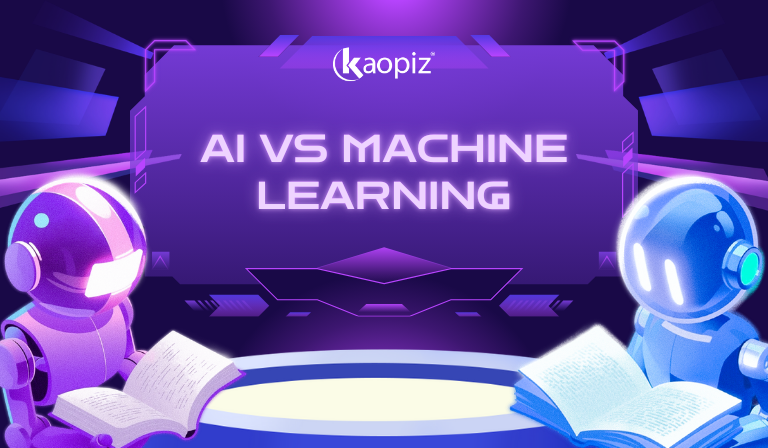
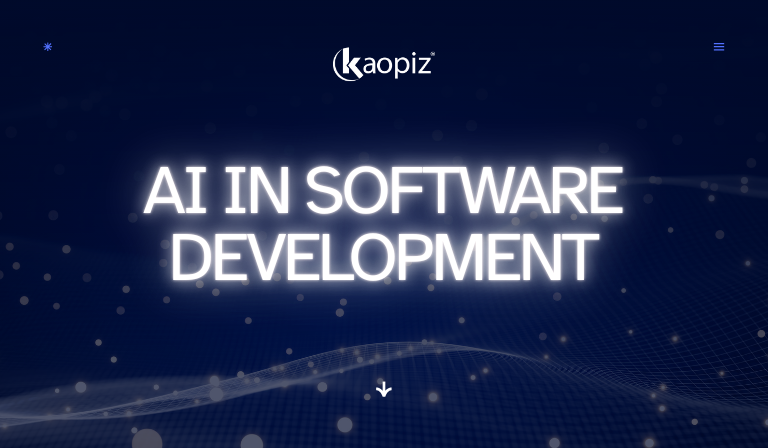
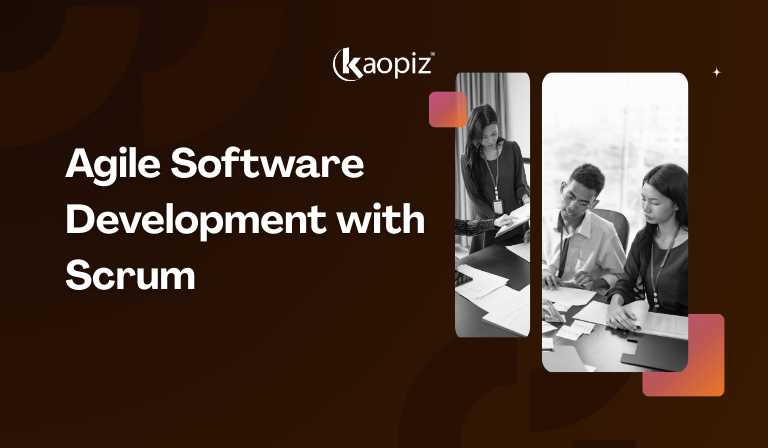
















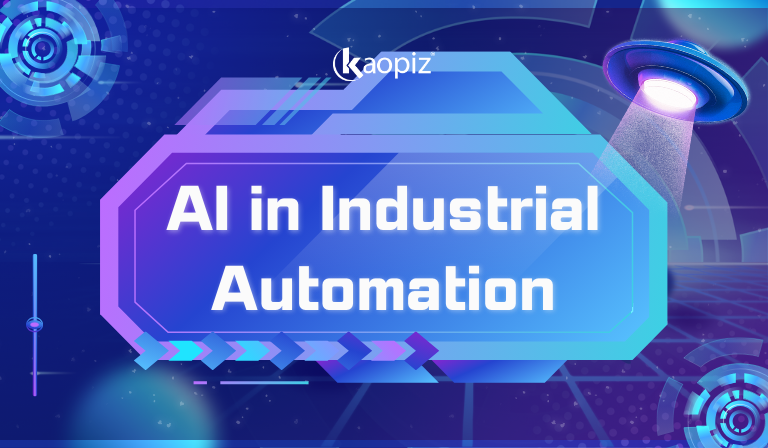

Pingback:Top 11 Trends in Educational Technology to Watch in 2025
Pingback:Top 10 LMS Trends and Innovations to Watch in 2025
Pingback:AI vs LMS Rules: Who Recommends Better Learning? - Talent Spline